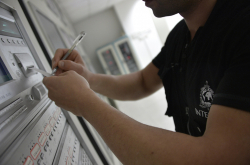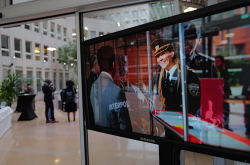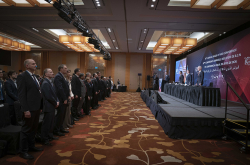Each of our member countries hosts an INTERPOL National Central Bureau (NCB). This connects their national law enforcement with other countries and with the General Secretariat via our secure global police communications network called I-24/7.
Many crimes today have an international aspect; think of cybercrimes, fugitives, or stolen or illicit goods that are driven by organized crime groups. When a crime goes beyond their national jurisdiction, a country needs international support to solve it.
The heart of INTERPOL
NCBs are at the heart of INTERPOL and how we work. They seek the information needed from other NCBs to help investigate crime or criminals in their own country, and they share criminal data and intelligence to assist another country.
As part of their role in global investigations, NCBs work with:
- Law enforcement agencies in their own country
- Other NCBs and Sub-Bureaus around the world
- The General Secretariat’s offices worldwide
NCBs can also develop training programmes for their national police to raise awareness on INTERPOL’s activities, services and databases.
Sharing criminal data
NCBs contribute national crime data to our global databases, in accordance with their respective national laws. This ensures that accurate data is in the right place at the right time to allow police to identify a trend, prevent a crime, or arrest a criminal. For example, our Red Notices alert police in all countries to wanted persons.
Cooperating on investigations
NCBs cooperate on cross-border investigations, operations and arrests. To take investigations beyond national borders, they can seek cooperation from any other NCB.
Given the common issues faced within each region, NCBs work together increasingly on a regional basis. They combine resources and expertise in successful interventions against those crime areas which affect them the most.
Who works in an NCB?
The composition of an NCB varies from country to country, but they are usually part of the national police force, and are staffed by highly-trained police officers.
NCBs often sit structurally in a unit close to the national police chief and most of them have the authority to trigger law enforcement action in their own countries.
Heads of NCB Conference
NCB staff shape INTERPOL's activities and plans, coming together each year at the Heads of NCB Conference. This provides a unique forum for building relationships and working together to find joint solutions to common challenges. Many Heads of HCB also participate at our General Assembly.
Contact with the public
INTERPOL NCBs do not respond to requests from the general public. Anyone wishing to report a crime or provide information on an international investigation should contact their local or national police, who will in turn contact the NCB.









